Introduction to Quartz Kitchen Countertops
Quartz kitchen countertops have become a popular choice among homeowners due to their durability, aesthetic appeal, and low maintenance. Made from one of the hardest minerals on earth, quartz countertops are a blend of natural quartz and resins, which provide a hard and resilient surface. These countertops come in a wide range of colors and patterns, making them a versatile option for any kitchen design. The combination of beauty and strength makes quartz an attractive option for those looking to upgrade their kitchen countertops.
The manufacturing process of quartz countertops involves mixing approximately 90% ground quartz with 10% resins, polymers, and pigments. This mixture is then subjected to intense heat and pressure to form a solid, non-porous surface. The result is a countertop that is both aesthetically pleasing and incredibly durable. Unlike natural stone countertops, quartz does not require sealing, making it a low-maintenance option for busy kitchens.

One of the key advantages of quartz countertops is their non-porous nature. This means they are resistant to stains, scratches, and bacteria, making them an ideal choice for kitchens where food preparation takes place. Additionally, quartz countertops are available in a wide variety of colors and patterns, including some that mimic the look of natural stone such as granite and marble. This allows homeowners to achieve the look they desire without sacrificing durability.
While quartz countertops are known for their durability and low maintenance, they are also an investment. The cost of quartz countertops can vary widely depending on several factors, including the quality of the quartz, the design complexity, and the installation process. On average, homeowners can expect to pay between $50 and $150 per square foot for quartz countertops, including installation. Understanding these costs and what influences them is crucial for anyone considering quartz for their kitchen.

Factors Influencing the Cost of Quartz Countertops
Several factors influence the cost of quartz kitchen countertops, making it important to understand each one before making a decision. The quality of the quartz used is a primary factor. Higher quality quartz typically contains more natural quartz content and fewer impurities, leading to a more durable and attractive countertop. These high-quality slabs usually come with a higher price tag but offer better performance and longevity.
The brand of the quartz countertop also plays a significant role in the overall cost. Well-known brands such as Caesarstone, Silestone, and Cambria often charge a premium for their products due to their reputation for quality and durability. These brands offer extensive warranties and a wide range of design options, which can justify the higher costs for many homeowners. However, there are also lesser-known brands that provide good quality quartz at a lower price point, offering a balance between cost and quality.
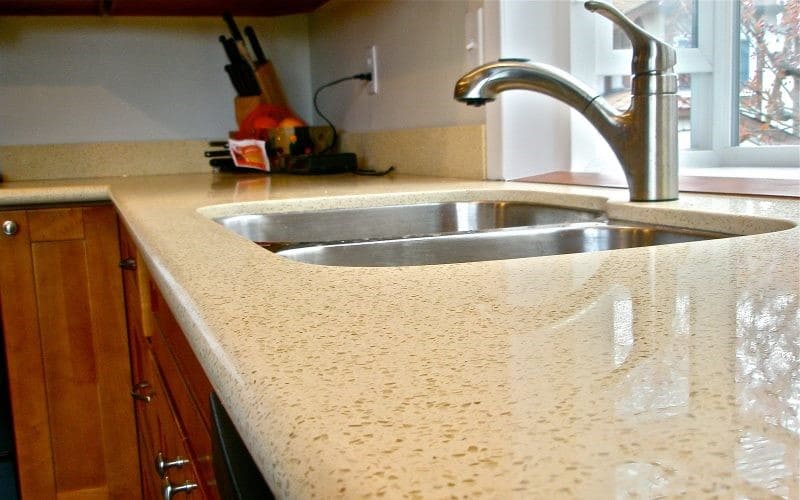
Another important factor is the complexity of the design and the amount of customization required. Intricate edge profiles, custom cut-outs for sinks and appliances, and unique shapes can all add to the overall cost. Simple, straightforward designs are generally more affordable, while more complex installations require additional labor and materials, increasing the price. The size of the kitchen and the number of seams needed also affect the total cost.
Labor costs for installation can vary significantly depending on the region and the experience of the installer. In areas with a high cost of living, installation prices tend to be higher. Additionally, experienced installers who specialize in quartz countertops may charge more for their expertise. It’s important to get multiple quotes from different installers to ensure you’re getting a fair price for the installation.
Shipping and handling costs can also impact the overall cost of quartz countertops. If the quartz slabs need to be shipped a long distance, these costs can add up quickly. Additionally, handling fees may be charged for moving and storing the heavy slabs. Some suppliers include these costs in their quotes, while others may add them as separate charges, so it’s important to clarify this when budgeting for your countertops.
Finally, any additional features or treatments, such as integrated sinks, backsplashes, or special finishes, can increase the cost. These extras can enhance the functionality and appearance of your kitchen but come at an added expense. When planning your budget, consider which features are essential and which ones you can do without to keep costs under control.
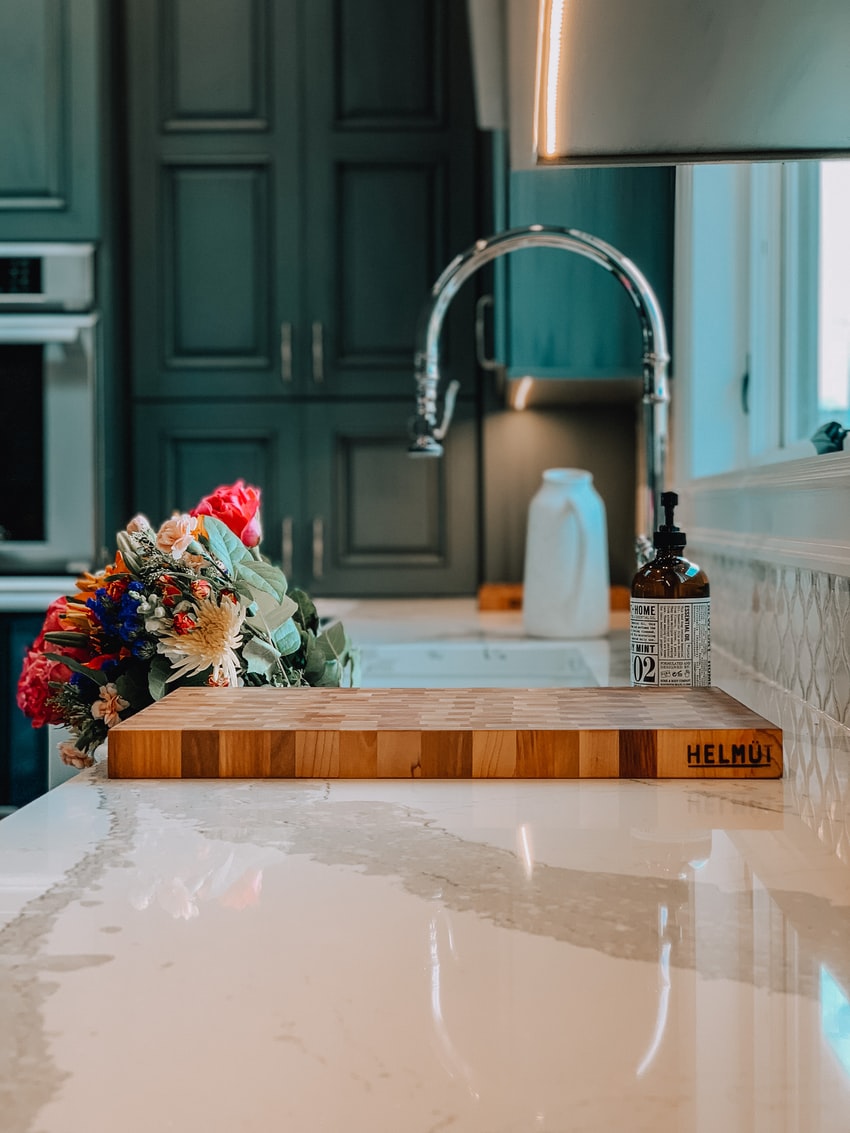
Average Cost Breakdown of Quartz Countertops
Understanding the breakdown of the average cost of quartz countertops can help homeowners budget more effectively for their kitchen renovation. The total cost typically includes the price of the material, fabrication, and installation, each contributing a significant portion to the overall expense. On average, the cost per square foot for quartz countertops ranges from $50 to $150, with the majority of homeowners spending between $2,000 and $4,000 for a standard kitchen.
The cost of the quartz material itself is usually the largest component of the total price. As mentioned earlier, the price of quartz can vary based on quality, brand, and color. Basic quartz options are generally priced between $50 and $70 per square foot, mid-range options between $70 and $100 per square foot, and premium options between $100 and $150 per square foot. Premium options often feature unique colors and patterns that closely mimic natural stone, justifying their higher price point.
Fabrication costs are another significant portion of the overall expense. This includes cutting the quartz slabs to fit your kitchen layout, creating edge profiles, and any additional customizations required. Fabrication costs can range from $20 to $50 per square foot, depending on the complexity of the work. Simple designs with standard edges are more affordable, while elaborate designs with custom edges and cut-outs will increase the fabrication cost.
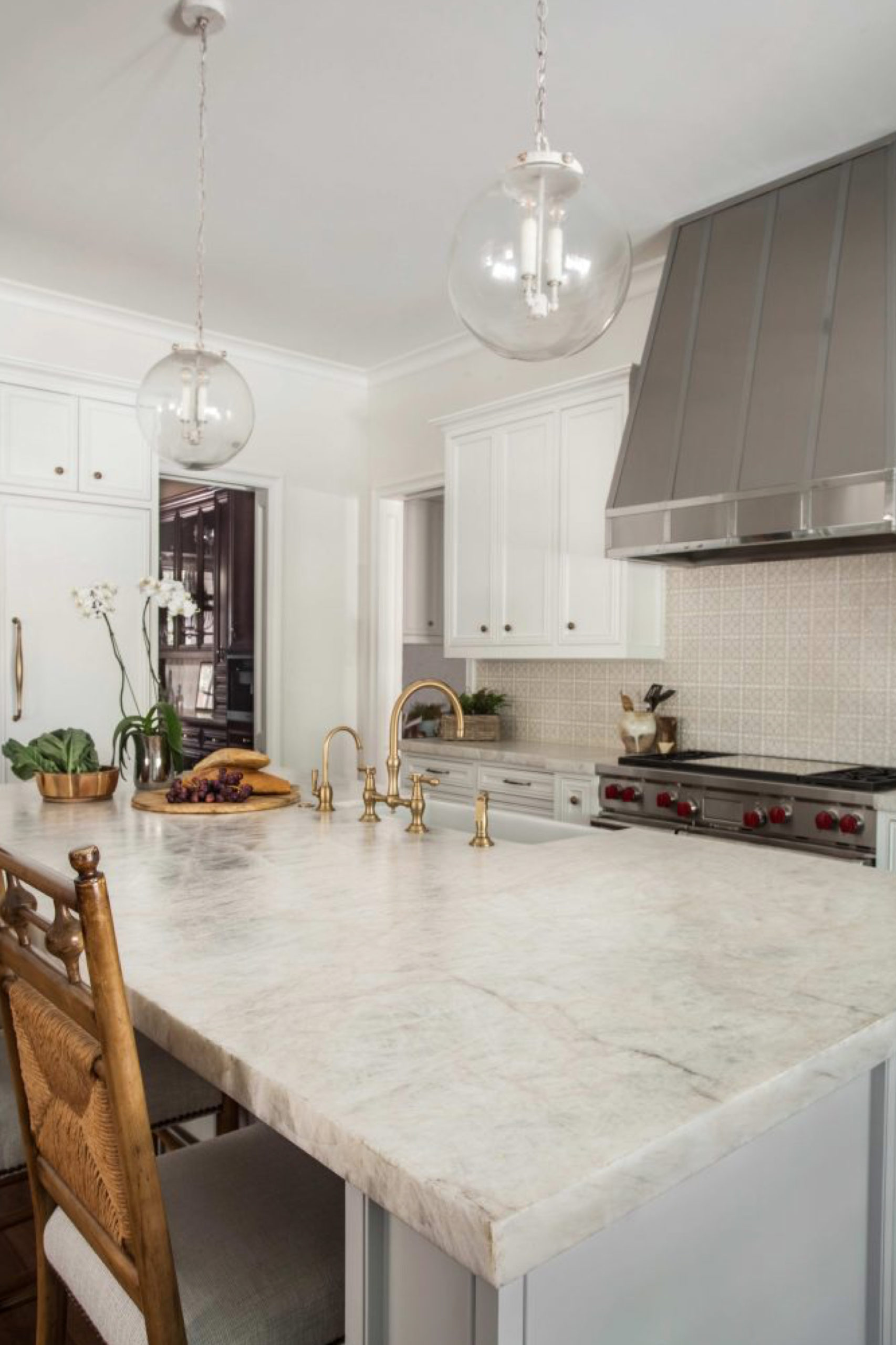
Installation costs can also vary widely but typically fall between $30 and $50 per square foot. Professional installation is crucial for ensuring that the countertops are properly fitted and supported, which helps prevent issues such as cracking or shifting over time. The installation process involves several steps, including removing old countertops, preparing the base cabinets, and precisely placing the new quartz countertops.
Additional costs to consider include any necessary modifications to your kitchen cabinets or plumbing. If your existing cabinets are not strong enough to support the weight of quartz countertops, you may need to reinforce or replace them, which can add to the overall cost. Similarly, plumbing adjustments may be required if your new countertop design includes a different sink configuration.
Other potential costs include backsplashes and edge treatments. A matching quartz backsplash can enhance the overall look of your kitchen but will add to the material and installation costs. Edge treatments, such as beveled or bullnose edges, can also increase the cost. Basic edge profiles are usually included in the base price, but more intricate designs will come at an additional expense.
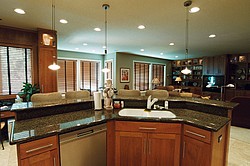
Cost Comparison with Other Countertop Materials
Comparing the cost of quartz countertops with other popular materials can help homeowners make an informed decision. Granite, marble, laminate, and solid surface are some of the common alternatives to quartz, each with its own price range and characteristics. Understanding the pros and cons of each material in relation to cost can provide valuable insights for choosing the best countertop for your kitchen.
Granite is one of the most popular natural stone options and is often compared to quartz. The cost of granite countertops typically ranges from $40 to $100 per square foot, including installation. While granite can be slightly less expensive than quartz, it requires regular sealing to maintain its resistance to stains and bacteria. Granite offers a unique, natural look with each slab being one-of-a-kind, but the need for ongoing maintenance can be a drawback for some homeowners.
Marble is another luxurious natural stone option, with prices ranging from $50 to $150 per square foot. Marble is renowned for its elegant appearance and unique veining, making it a sought-after choice for high-end kitchens. However, marble is softer and more porous than quartz, making it more susceptible to scratches, stains, and etching from acidic substances. The higher maintenance requirements and potential for damage make marble a more delicate and costly option over time.
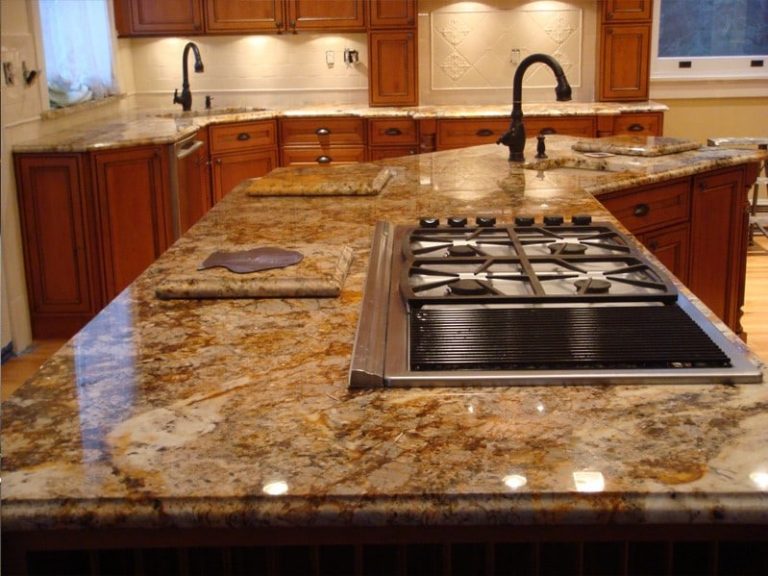
Laminate countertops are a budget-friendly alternative, with prices typically ranging from $10 to $40 per square foot. Laminate is made from layers of paper or fabric impregnated with resin and bonded to a particleboard core. While laminate countertops are much less expensive than quartz, they are also less durable and more prone to scratches, burns, and water damage. Laminate is a good choice for those on a tight budget, but it does not offer the same longevity or aesthetic appeal as quartz.
Solid surface countertops, such as Corian, are another option, with costs ranging from $50 to $100 per square foot. Solid surface countertops are made from a blend of acrylic and natural materials, creating a seamless and non-porous surface. They are durable and easy to repair if damaged, but they can be scratched and scorched by hot cookware. Solid surface countertops offer a middle ground between laminate and quartz in terms of cost and performance.
Quartzite is another natural stone that is often compared to quartz. Quartzite countertops typically cost between $60 and $120 per square foot. Quartzite is a natural stone that is harder than granite and offers a similar look to marble, with unique veining and patterns. While quartzite is very durable, it also requires regular sealing to protect against stains and etching. The cost and maintenance requirements of quartzite are similar to those of quartz, making it a strong contender for homeowners seeking a natural stone look.
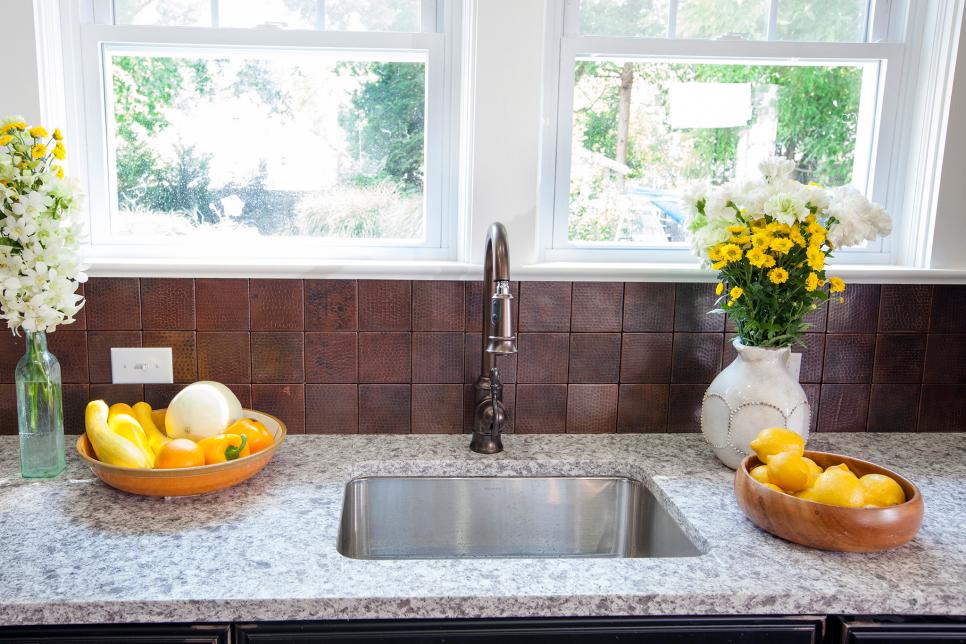
Tips for Budgeting and Financing Quartz Countertops
Budgeting and financing are crucial aspects of any kitchen renovation project, including the installation of quartz countertops. Careful planning and consideration of all costs involved can help ensure that your project stays within budget and meets your expectations. Here are some tips to help you budget and finance your quartz countertop installation effectively.
Start by getting multiple quotes from different suppliers and installers. This will give you a better idea of the range of prices and help you identify any potential outliers. Be sure to ask for detailed quotes that break down the cost of materials, fabrication, and installation separately. This transparency will help you compare quotes more effectively and understand where your money is going.
Consider the timing of your purchase. Some suppliers offer discounts or promotions during certain times of the year, such as holiday sales or end-of-season clearances. Taking advantage of these promotions can help you save money on your quartz countertops. Additionally, some suppliers may offer financing options, allowing you to spread the cost of your countertops over several months or years.
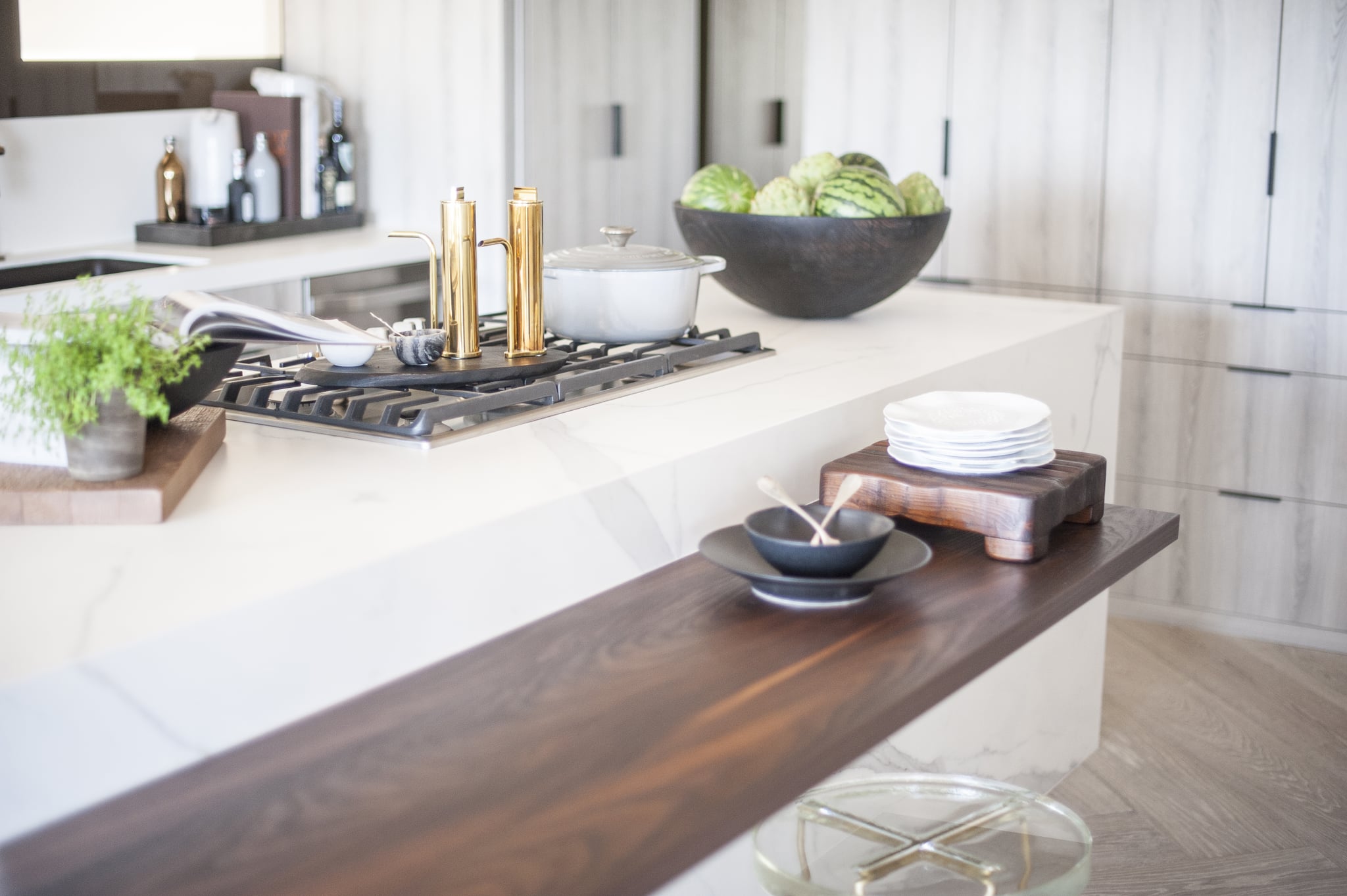
If you’re working with a tight budget, consider opting for a standard color and design rather than a premium or custom option. Standard colors and designs are often less expensive because they are more readily available and require less customization. Additionally, simpler edge profiles and fewer cut-outs can help keep fabrication costs down.
Another way to save money is to do some of the preparatory work yourself. For example, you can remove your old countertops and prepare the base cabinets before the installers arrive. However, be sure to discuss this with your installer first to ensure that you are not inadvertently complicating the installation process or voiding any warranties.
When planning your budget, don’t forget to include any additional costs that may arise, such as reinforcing your cabinets, plumbing adjustments, or adding a backsplash. These costs can add up quickly and should be factored into your overall budget. It’s also a good idea to set aside a contingency fund of about 10-15% of your total budget to cover any unexpected expenses that may arise during the project.
Finally, consider financing options if you need to spread the cost over time. Many home improvement stores and suppliers offer financing plans with low or no interest for a set period. Additionally, home equity loans or lines of credit can provide funding for larger projects. Be sure to compare the terms and interest rates of different financing options to find the one that best fits your financial situation.
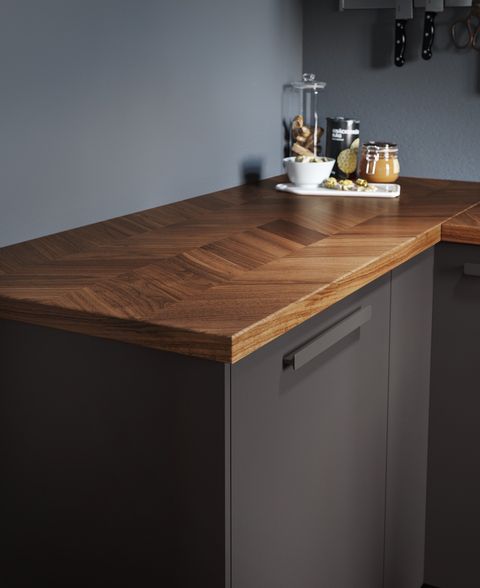
Common Mistakes to Avoid
When investing in quartz kitchen countertops, it’s important to avoid common mistakes that can lead to increased costs, delays, and dissatisfaction with the final result. By being aware of these pitfalls, you can ensure a smoother installation process and a more successful kitchen renovation.
Underestimating the Total Cost: One of the most common mistakes is underestimating the total cost of quartz countertops. Many homeowners focus solely on the price per square foot and overlook additional costs such as fabrication, installation, and any necessary modifications to cabinets or plumbing. Be sure to get detailed quotes and include all potential expenses in your budget to avoid any financial surprises.
Choosing the Wrong Installer: The quality of the installation is just as important as the quality of the quartz itself. Choosing an inexperienced or unqualified installer can lead to poor results, such as uneven seams, improper support, or damage to the countertops. Take the time to research and select a reputable installer with experience in working with quartz countertops. Ask for references and read reviews to ensure you’re hiring a professional.
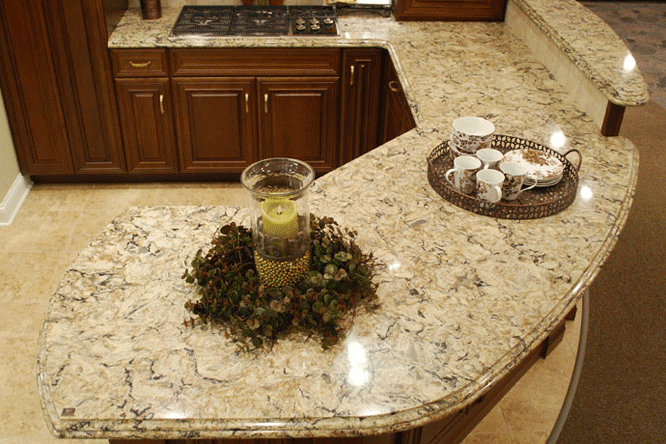
Ignoring Maintenance Requirements: While quartz countertops are low maintenance compared to natural stone, they still require proper care to maintain their appearance and durability. Avoid using harsh chemicals or abrasive cleaners that can damage the surface. Instead, use mild soap and water or a gentle countertop cleaner. Regularly clean spills and avoid placing hot pots and pans directly on the countertop to prevent damage.
Not Considering the Long-Term Use: When selecting a quartz countertop, it’s important to consider how you will use it in the long term. For example, if you frequently cook and bake, you may want a more heat-resistant and scratch-resistant surface. Consider the durability and maintenance requirements of the quartz you choose to ensure it will meet your needs over time.
Overlooking the Importance of Color and Design: The color and design of your quartz countertops can have a significant impact on the overall look of your kitchen. Don’t rush this decision or choose a design solely based on price. Take the time to consider how the countertops will coordinate with your cabinets, flooring, and backsplash. Request samples to see how different colors and patterns look in your kitchen’s lighting before making a final decision.
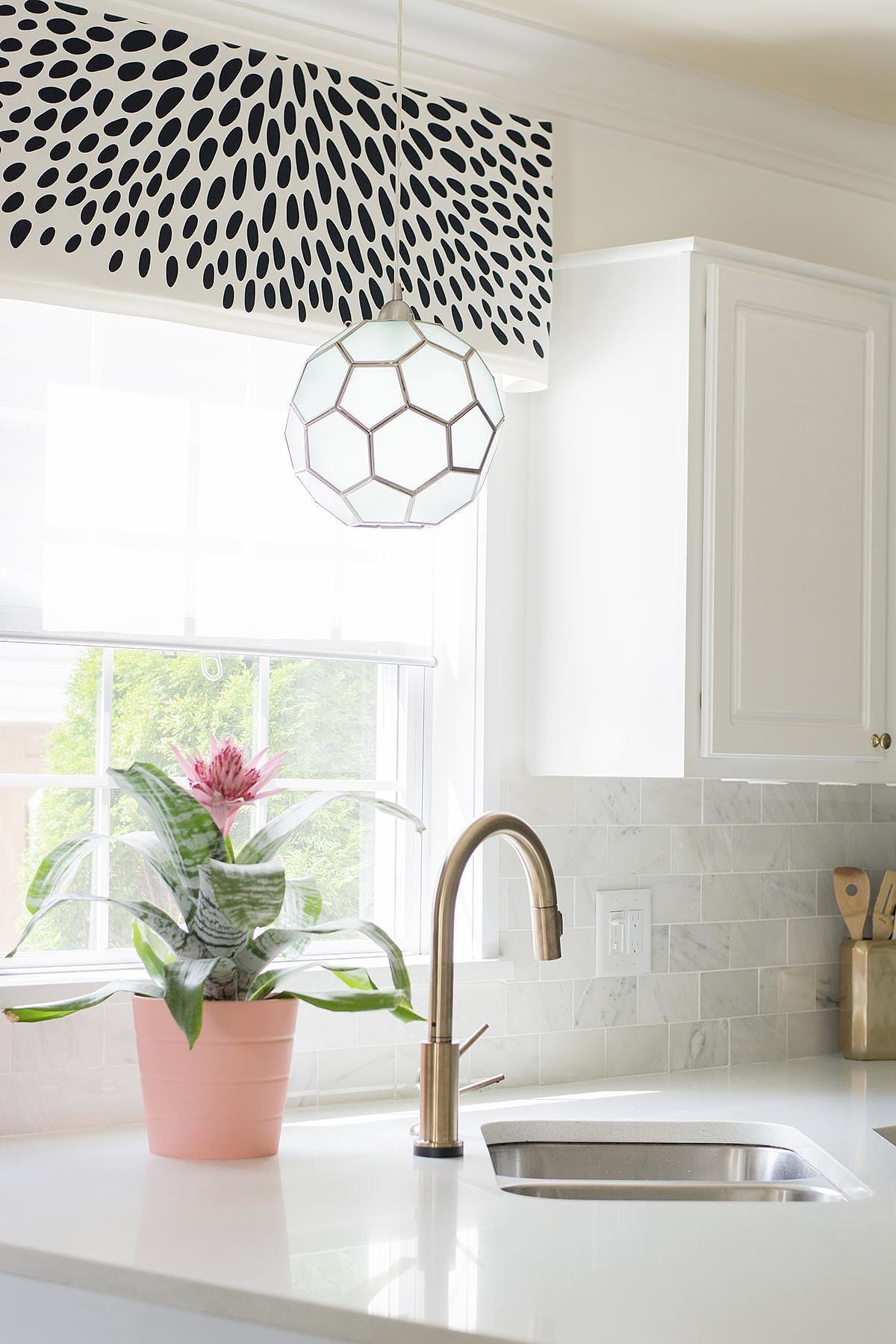
How long do quartz countertops last?
Quartz countertops are incredibly durable and can last for decades with proper care. Their longevity is one of their main advantages, as they are resistant to scratches, stains, and heat. Unlike natural stone countertops, quartz does not require regular sealing, which makes it a low-maintenance option. Most manufacturers offer warranties ranging from 10 years to a lifetime, reflecting the confidence in their product’s durability.
Are quartz countertops eco-friendly?
Quartz countertops are considered more eco-friendly than many other countertop materials. The production process utilizes abundant natural quartz and often incorporates recycled materials. Additionally, because quartz countertops are extremely durable and long-lasting, they do not need to be replaced as frequently as other materials, reducing waste. However, it’s important to consider the environmental impact of the resins and polymers used in their production, as well as the energy-intensive manufacturing process.
Can quartz countertops be repaired if they are damaged?
While quartz countertops are highly resistant to damage, they are not indestructible. If a quartz countertop does become chipped or cracked, it can often be repaired by a professional. Small chips can sometimes be filled with color-matched epoxy resin, while larger cracks may require more extensive repair work. It’s important to address any damage promptly to prevent it from worsening and to maintain the countertop’s integrity.
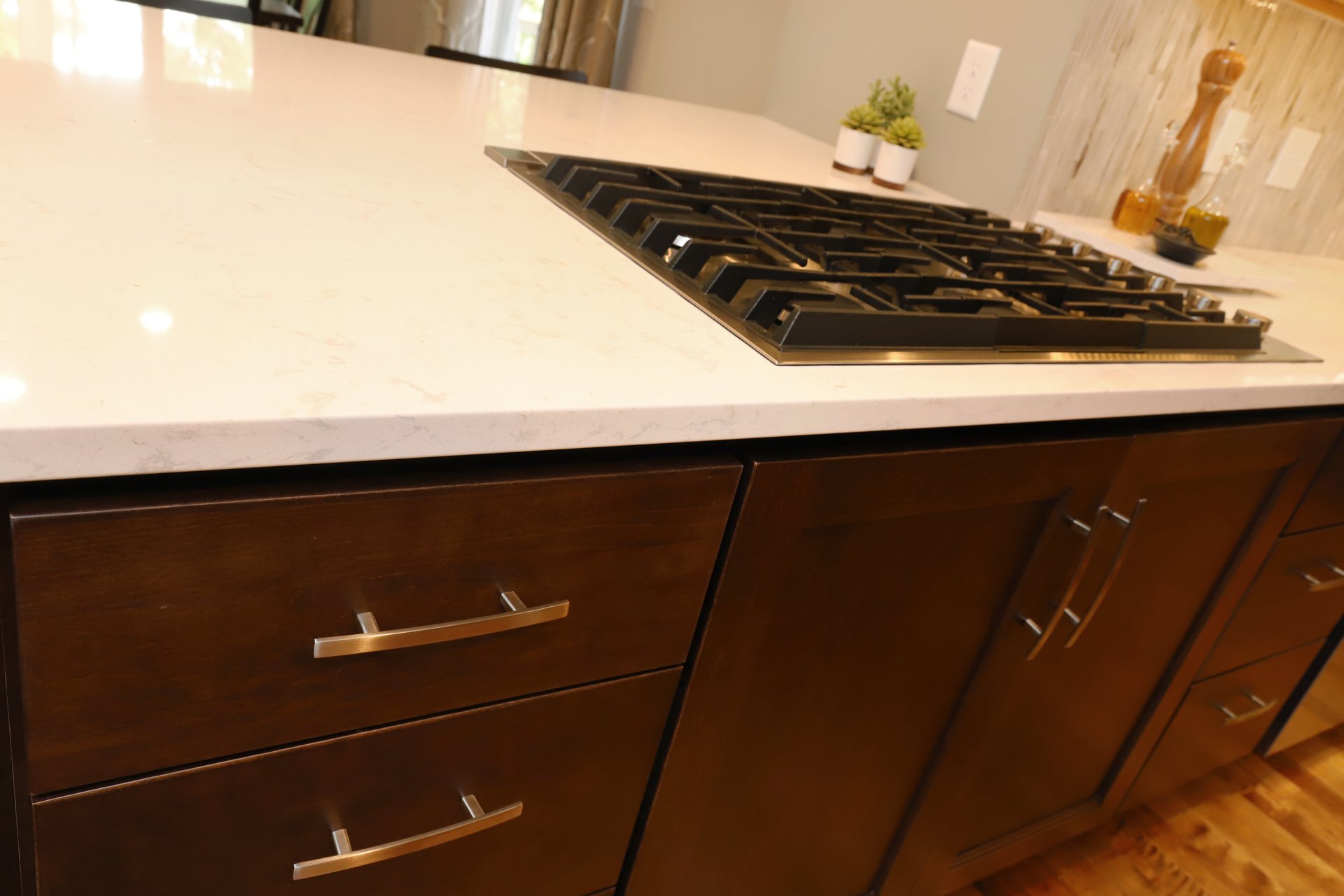
How do quartz countertops compare to granite in terms of maintenance?
Quartz countertops are generally easier to maintain than granite. Quartz is non-porous, meaning it does not require sealing and is more resistant to stains and bacteria. In contrast, granite is porous and needs to be sealed regularly to protect against stains and moisture. Both materials are durable, but quartz offers the added benefit of lower maintenance and ease of cleaning with mild soap and water or a gentle countertop cleaner.
Are there any drawbacks to quartz countertops?
While quartz countertops offer many benefits, there are a few drawbacks to consider. Quartz is not as heat-resistant as some natural stones, so it’s important to use trivets or hot pads to protect the surface from hot pots and pans. Additionally, although quartz offers a wide range of colors and patterns, some people prefer the unique, natural look of granite or marble. Finally, quartz countertops can be more expensive than some other materials, such as laminate or solid surface options, making them a significant investment for homeowners.
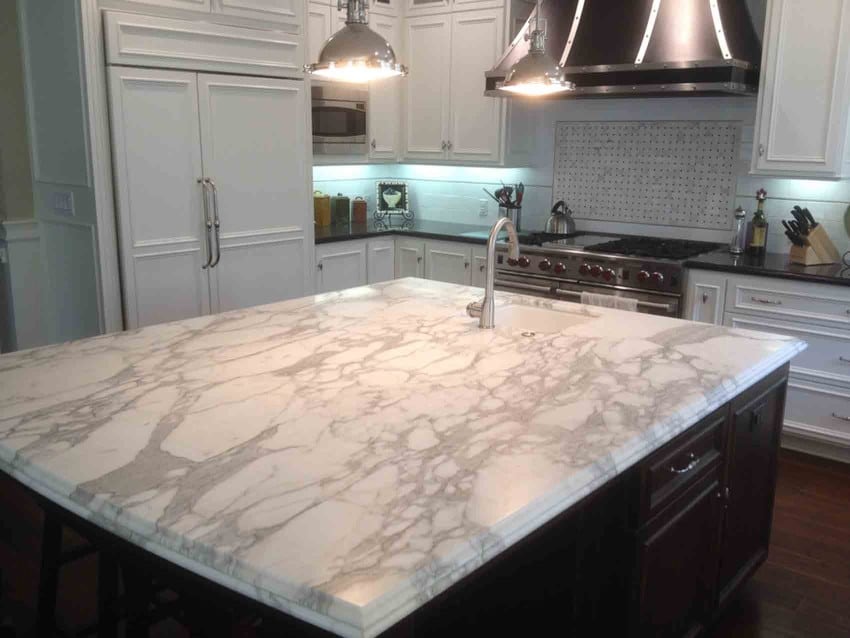
Related Posts:
- Black And White Kitchen Countertops
- DIY Tile Kitchen Countertops
- Fake Granite Kitchen Countertops
- Hgtv Kitchen Countertops
- Corian Kitchen Countertop Pictures
- How To Paint Kitchen Countertops To Look Like Granite
- Grey Kitchen Countertops Ideas
- Sustainable Kitchen Countertops
- Latest Trends In Kitchen Countertops 2022
- Unique Kitchen Countertop Materials